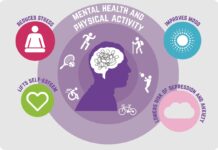
Preparing for your GCSEs can be a bit like navigating a complex maze – you know there’s an end goal in sight, but the journey can be full of unexpected twists and turns, especially when it comes to managing stress and anxiety.
It’s essential, then, to equip yourself with the right tools and mindset to ensure you emerge from this experience not just academically successful, but also mentally strong and healthy.
Understanding Stress and Anxiety

Stress and anxiety are often used interchangeably, but they’re quite different. Stress is a normal reaction to a demanding situation, like an upcoming exam. It’s often temporary and can actually be a motivating force.
Anxiety, however, is more pervasive. It’s a sense of worry or fear that doesn’t necessarily go away once the situation has passed and can start to interfere with your daily life. Recognising whether you’re experiencing stress or anxiety is crucial because it shapes how you handle these feelings.
The Signs to Look Out For
Physical symptoms of stress and anxiety include sleep disturbances, changes in appetite, headaches, or an upset stomach. Emotionally, you might feel irritable, overwhelmed, or detached. Stress can make you feel hurried or pressured, while anxiety often brings about excessive worry or fear about the future. If you notice these signs, it’s an indication that you need to take a step back and reassess your approach to your GCSE preparation.
Top Tip: Start talking! One of the most effective ways to alleviate stress and anxiety is to talk about it. Sometimes, the simple act of verbalising what you’re going through can provide relief and bring clarity.
Whether it’s chatting with a friend, discussing your worries with a family member, or seeking guidance from a teacher, opening up about your feelings can help you feel supported and less alone in your struggles.
Creating a Balanced Study Schedule

Balance is key when it comes to study schedules. Overloading your day with study sessions can lead to burnout, while too little structure can cause anxiety over unpreparedness. Find a middle ground – schedule regular study sessions but include breaks and time for relaxation.
Use tools like planners or apps to create a timetable that works for you, balancing your study commitments with free time for relaxation and hobbies.
The Power of Exercise and a Healthy Diet
Exercise is a powerful tool for combating stress and anxiety. Physical activity releases endorphins, chemicals in your brain that act as natural painkillers and mood elevators. You don’t need to engage in intense workouts; even moderate exercise like a brisk walk, a cycle around the park, or a yoga session can have significant benefits for your mental health.
What you eat also plays a crucial role in how you feel. A diet rich in fruits, vegetables, whole grains, and lean proteins can provide the energy and nutrients your brain needs to function optimally. Do your best to avoid, or at least limit, caffeine and sugar, as these can exacerbate anxiety and lead to energy crashes.
Mindfulness and Relaxation Techniques

Mindfulness and relaxation techniques can be incredibly effective in managing stress and anxiety. Practices like deep breathing, meditation, and guided imagery help focus your mind on the present moment, reducing the racing thoughts often associated with anxiety. Apps that offer guided meditation or mindfulness exercises can be a convenient way to incorporate these practices into your daily routine.
As well as enjoying plenty of relaxation, don’t forget that adequate sleep is essential for cognitive function, mood regulation, and overall health. A lack of sleep can exacerbate feelings of stress and anxiety, creating a vicious cycle. Develop a regular sleep schedule, create a restful environment, and engage in calming activities before bed, like reading or listening to soothing music.
Effective Strategies for Alleviating Maths Exam Stress

Maths, with its complex problems and precise answers, can often be a significant source of stress for GCSE students. However, there are effective strategies to alleviate this anxiety, turning maths revision into a more manageable and even enjoyable task.
-
Start Early and Break It Down
Procrastination is a major stress amplifier. Start your maths revision well in advance of your exams. Break down the syllabus into smaller topics and tackle them one at a time. This approach makes the content more digestible and less overwhelming, allowing you to gradually build your confidence in each area.
-
Create a Revision Timetable

A well-structured revision timetable can be a lifesaver. Allocate specific times for each maths topic and stick to this schedule. Consistency is key in maths; regular practice helps cement concepts in your mind. Ensure you balance your time between different subjects to avoid burnout.
-
Use a Variety of Resources
Don’t limit yourself to one form of revision material. Utilise textbooks, online tutorials, educational apps, and past exam papers. As a prime example, Save My Exams offers examiner-written Maths GCSE revision support that is bound to help you grow in confidence.
-
Focus on Understanding, Not Just Memorising
Understanding the ‘why’ behind maths problems is more important than rote memorisation. Strive to comprehend the underlying principles and logic; this will make it easier to tackle a wide range of questions, including unfamiliar ones.
Setting Realistic Expectations

It’s important to set realistic expectations for yourself. While it’s good to aim high, setting goals that are unattainable can lead to feelings of inadequacy and stress. Your academic achievements do not solely define your worth. Recognise your effort, celebrate small victories, and understand that it’s okay not to be perfect.
Building Resilience for the Long Haul
Building resilience is key to navigating the ups and downs of GCSE preparation. Resilience is the ability to bounce back from setbacks and adapt to challenging circumstances. It involves maintaining a positive attitude, focusing on solutions rather than problems, and not being afraid to seek support when needed.
The Role of Hobbies and Social Activities

Hobbies and social activities are not just distractions from study; they are essential for your mental well-being. They provide an outlet for stress, offer a sense of accomplishment, and can improve your mood. Whether playing a musical instrument, painting, or hanging out with friends, make sure to carve out time for activities that bring you joy.
Professional Help: It’s Okay to Seek It!
If stress and anxiety become overwhelming or persistent, it’s okay to seek professional help. This could be talking to a school counsellor, a therapist, or a mental health professional. They can provide coping strategies and support tailored to your needs. Seeking help is a sign of strength and a proactive step towards taking care of your mental health.
Exam Day Strategies

Develop strategies to manage anxiety on the day of your exams. This could include breathing exercises to calm nerves, positive affirmations to boost confidence, or having a pre-exam routine that helps you focus. Arrive at the exam venue early to avoid the added stress of rushing, and take a moment to ground yourself before the exam starts.
Reflect and Learn
After each exam, take time to reflect on what went well and what could be improved. This process is not about being critical of yourself but about learning and growing. It helps build resilience and better prepares you for future challenges.
Final Thoughts
Navigating mental health during GCSEs requires a multifaceted approach that includes understanding your stressors, discussing your feelings, maintaining a balanced lifestyle, and seeking help when needed. It’s about studying smart, caring for your mental well-being, and remembering that your value extends far beyond your academic achievements.
With the right strategies and support, you can manage stress and anxiety effectively and emerge from your GCSEs feeling accomplished and mentally stronger.











